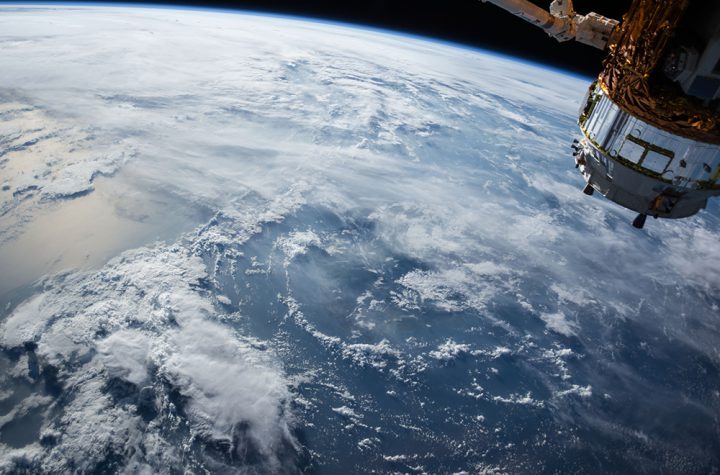
President TrumpDonald John TrumpFive takeaways from the Democratic debateSanders, Warren exchange underscores Iowa stakesCNN’s Van Jones: Democratic debate was ‘dispiriting,’ no evidence party can defeat TrumpMORE and Chinese Vice Premier Liu He signed an initial “Phase One” trade agreement Wednesday, freezing a 20-month trade war between Washington and Beijing and opening the door to a more-substantial “Phase Two” deal.
The deal, text of which was not released ahead of the signing, is said to include commitments by China to buy $200 billion of U.S. goods, including as much as $50 billion in agricultural products over two years.
Today we take a momentous step, one that has never been taken before with China, toward a future of fair and reciprocal trade as we sign Phase One of the historic trade deal between the United States and China, Trump said.
Together we are righting the wrongs of the past and delivering a future of economic justice and security for American workers, farmers and families.
The deal will halve 15 percent tariffs on $120 billion of Chinese imports, but leave 25 percent tariffs on an additional $250 billion of imports in place. Agreement on the deal prevented a planned increase in the tariff rate last October and a new round of tariffs last December.
Businesses are eagerly awaiting the text of the agreement, with trade watchers raising concerns about enforceability and the extent of Chinas commitment.
Speaking to CNBC Wednesday morning, Treasury Secretary Steve Mnuchin said that Trump could reimpose tariffs in the event that China reneges on its commitments.
Mnuchin noted that the first part of the deal included provisions on intellectual property, forced technology transfer, agriculture, financial services, and currency, but agreed that significant issues remain for future negotiations.
There are certain areas of other services away from financial services that will be in Phase Two. Theres certain additional cyber security issues that will be in Phase Two. So, there are still more issues to deal with. And well address those, he said.
Trump himself has raised the possibility that he could postpone Phase Two, which would address the thorniest issues on intellectual property, technology, state-owned enterprises, industrial subsidies among others, until after Novembers election.
The president signed Phase One at an ostentatious ceremony in the East Room of the White House, where he was joined by a high-ranking Chinese delegation, top administration officials, and several high-profile guests, including Fox Business Network host Lou DobbsLouis (Lou) Carl DobbsDuckworth slams Collins’s comments: ‘I left parts of my body in Iraq fighting terrorists’Judd Apatow urges Georgia voters to get rid of Doug Collins after ‘terrorists’ commentRep. Collins says Democrats are ‘in love with terrorists,’ ‘mourn Soleimani’MORE, GOP donors Sheldon and Miriam Adelson and former Secretary of State Henry Kissinger, who served as an intermediary for the administration in negotiations with China.
As Chinese officials stood on stage, Trump spent about 45 minutes giving individual introductions to each of the U.S. lawmakers and business officials in attendance, complaining about trade deficits and criticizing Democrats and impeachment before actually signing the document.
The White House sought to frame the signing as a capstone to a signature achievement for the president, even amid questions about the impact Phase One will have on the U.S. economy and what comes next.
Top White House economic adviser Larry KudlowLawrence (Larry) Alan KudlowMORE told reporters prior to the signing ceremony that the U.S. got about half of what it was looking to achieve with China in the Phase One deal. Still, he portrayed the initial pact as historic.
The other half, its not that we didnt get it, its just incomplete, Kudlow said. The heavy lifting here was getting Phase One. Make no mistake about that. Nothing like this has ever happened before in history.
The president campaigned on cracking down on China, and even some Democrats cheered his efforts to confront Beijing over its economic practices. But the path to Wednesdays signing was fraught.
The two countries levied tens of billions of dollars in tariffs on the other, raising concerns of a global recession. U.S. farmers, in particular, were hurt by the trade war, with the Trump administration announcing billions of dollars in subsidies to placate them. The two sides appeared close to a deal last year, only for talks to break down.
Negotiations restarted in earnest last summer, when Trump reportedly told Chinese President Xi Jinping he would not raise the protests in Hong Kong amid discussions. Trump then announced in October the two sides had reached a deal, only for the White House to announce in December that a Phase One pact had actually been reached.
Still, the White House pointed to the Phase One signing as validation of the presidents unorthodox negotiating strategy.
Early in this administration, you made it clear that the era of economic surrender was over, and you took a strong stand for American jobs and American workers, Vice President Mike PenceMichael (Mike) Richard PenceUS citizen dies in Egyptian prison after hunger strikeHere’s what happens next on impeachmentUS troops clear rubble, debris from Iraq base struck by Iranian missilesMORE said to Trump at the ceremony.
You said to our friends in China that things had to change, and thanks to your leadership, today change begins, he added.
But critics, such as Senate Minority Leader Charles SchumerCharles (Chuck) Ellis SchumerSchumer, Senate Democrats push Trump to release full aid to Puerto Rico following earthquakesSchumer on Trump tweet: ‘How low can the president go?’Watchdog group requests ethics probe into McConnell over impeachment remarksMORE (D-N.Y.), argue that the deals greatest achievement was pausing a trade war that Trump himself initiated.
For all the effort and turmoil over the past few years, the deal that President Trump plans to sign tomorrow hardly seems to advance the United States past square one, Schumer said on Tuesday.
I fear that with an election around the corner, the president is taking the easy way outsettling for a weak deal that will cost American businesses, American farmers, and American workers for years and years to come, he added.
The deals signing comes as the Senate prepares to advance Trumps other signature trade achievement, the United States Canada Mexico Agreement. The deal, already passed in the House, would update the North American Free Trade Agreement, a key campaign promise.
The Senate could take up the deal as soon as this week, before it begins an impeachment trial next Tuesday. The deal passed several procedural steps Wednesday morning when it was approved in key committees.





More Stories
As the pandemic wreaks havoc on TV and movie ‘love lives’, intimacy coordinators need to find ways to adapt